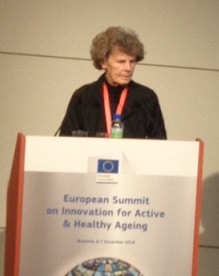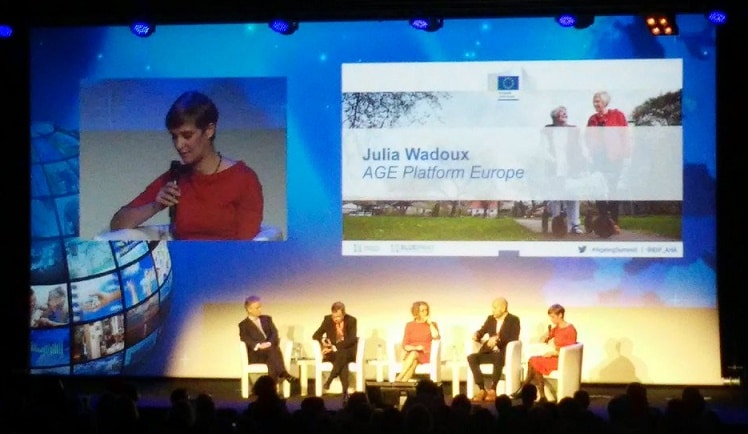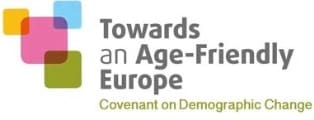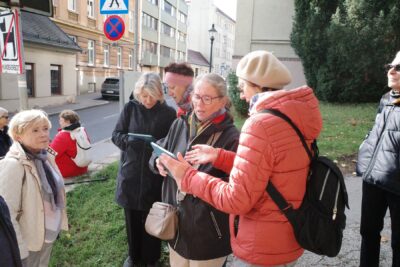
For the European Commission, the Silver Economy should help reconcile public and private interest to make health systems sustainable while boosting economic growth. To do so, the Commission presented the new European blueprint, EU’s common vision on how innovation – enabled by a Digital Single Market – can transform health and care provision. That document was developed with the cooperation of policy makers, civil society organisations, professional organisations and the industry.
AGE was invited to bring older people’s’ voice in two sessions of the summit: a thematic debate dedicated to the ‘users’ of the innovative solutions, in which Heidrun Mollenkopf, AGE Vice-President, took part, and a plenary session looking at a new model of Public Private Partnerships for innovation in health and care, in which Julia Wadoux, AGE Project and Policy Officer, represented AGE.
User perspective: experience from EU research projects

‘There are people who would like to use technology and people who are skeptical about novelty, but when they feel it is useful to them, most of them are ready to accept and learn it’, stated AGE Vice-President.
New technology has the potential to enhance life and provide a stronger feeling of security in old age, but to that end the digital development need to take into account the different capacities, interests and needs of the older population and to avoid increasing the isolation of lonely older persons. Mrs Mollenkopf encouraged stakeholders to also considering new forms of living together.
Age-friendly environments: a key driver for active and healthy ageing

‘Age-friendly environments are not only about health and care: they are also about transport, housing, outdoor space, community services and employment’, stated Mrs Wadoux, further adding that those supportive environments ‘rely on the participation of older people, they are framed with older people, not for older people’.
Older people are not a homogeneous group – between 60 and 90, there are 30 years of Life – which means a great diversity of profiles, needs and expectations and makes it all the more important to bring a user perspective in experimentation and innovations.


These initiatives are part of AGE’s commitment to supporting the development of an EU Silver Economy that meets the needs and expectations of the European ageing population.
As a partner of the Summit, AGE also held an information stand within an exhibition areas dedicated to partners and researchers from all over Europe showing how digital solutions (apps, robots and other tools – mainly EU-funded results) can innovate older people’s care. This offered for us an important opportunity to present our network and our policy and research project activities.






